
Discover Quality Puja Samagri Online

Discover Quality Puja Samagri Online
Buddha Idols
Showing all 18 results
-
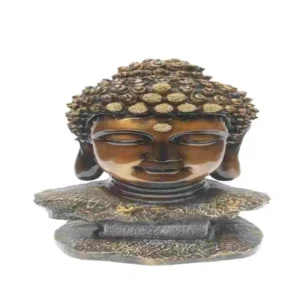
Big Buddha Head Idol | Antique Bronze Buddha Statue for Home Decor – Marble Dust Finish
NEW! ₹3,999.00 -
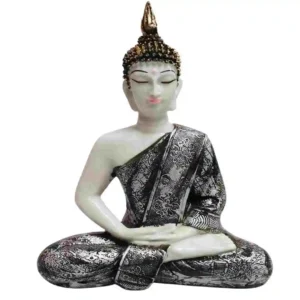
Black & Silver Buddha Idol | Marble Dust Meditating Buddha Statue for Home Decor & Gifting
NEW! ₹1,099.00 -
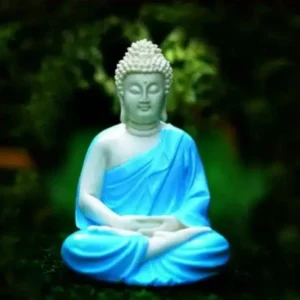
Blue Buddha Statue
₹399.00 -
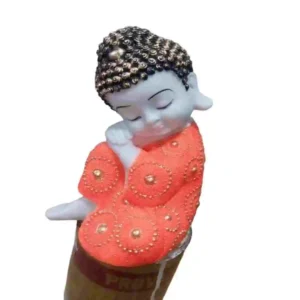
Cute Sleeping Buddha Idol | Marble Dust Baby Buddha Statue for Gifting & Home Decor
NEW! ₹799.00 -
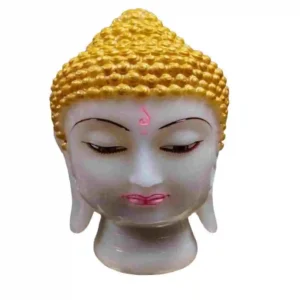
Golden Buddha Head Idol | Marble Dust Buddha Face Statue for Peaceful Home Decor
NEW! ₹1,699.00 -
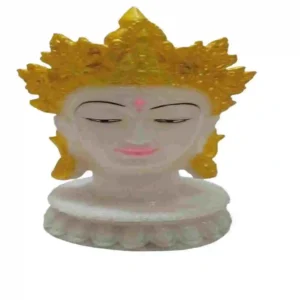
Golden Crown Buddha Head Idol | Marble Dust Buddha Statue for Home Decor & Gifting
NEW! ₹1,699.00 -
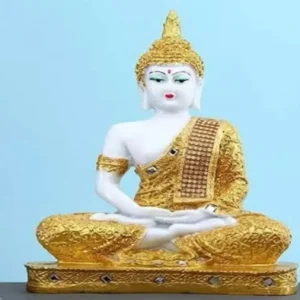
Golden Lord Gautam Buddha Idol Statue
₹499.00 -
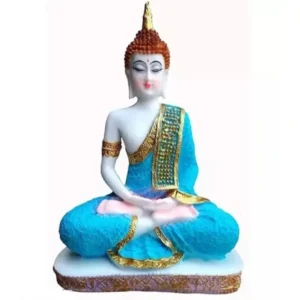
High Quality Lord Gautam Buddha Statue
₹499.00 -
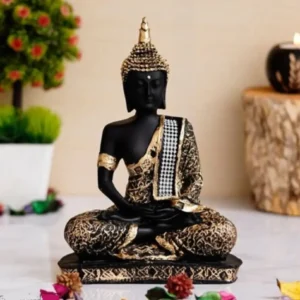
Meditating Buddha Statue of Height 9 inch
₹299.00 -
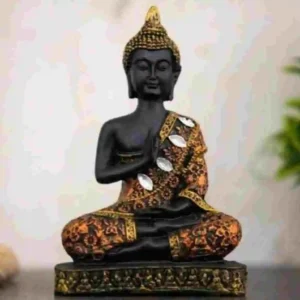
Meditating Lord Buddha Idol of Height 6 Inch
₹299.00 -
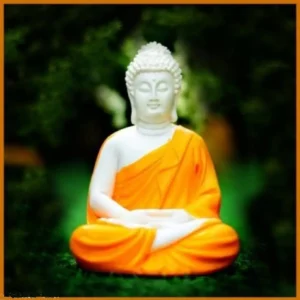
Orange Buddha Statue
₹399.00 -
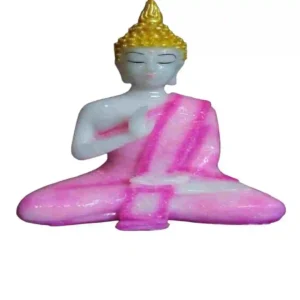
Pink Robe Buddha Idol | Marble Dust Statue of the Buddha for Home Decor & Gifting
NEW! ₹799.00 -
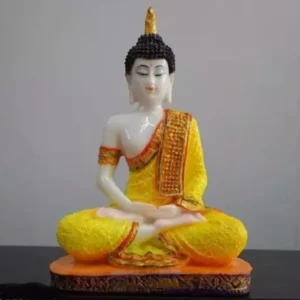
Premium Quality Lord Buddha Idol
₹499.00 -
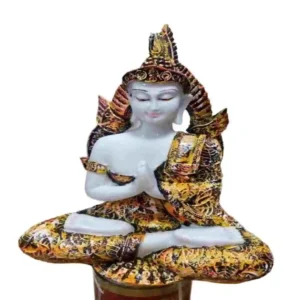
Sitting Buddha Idol in Namaste Pose | Colorful Marble Dust Buddha Statue for Home & Gifts
NEW! ₹2,299.00 -

Sitting Buddha Idol Statue Showpiece
₹699.00 -
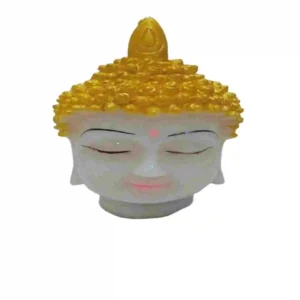
Small Buddha Head Idol | Marble Dust Buddha Face Statue for Home & Office Decor
NEW! ₹599.00 -
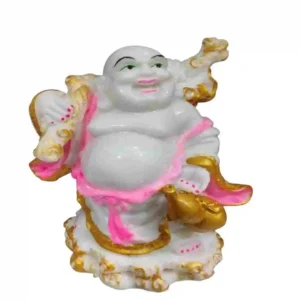
White Laughing Buddha Idol | Marble Dust Laughing Buddha Figurine for Home Decor & Gifts
NEW! ₹799.00 -
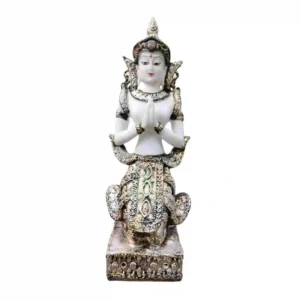
White Standing Buddha Idol | Marble Dust Buddha Statue for Home Decor & Gifting
NEW! ₹1,699.00
The Statue of Gautam Buddha is a symbol of enlightenment, compassion and inner peace in the spiritual world. The Lord Buddha idol’s roots go back to Siddhartha Gautama’s life. He became enlightened under the Bodhi tree in Bodh Gaya in India about 2,500 years ago. The Lord Buddha idol is known for its special symbols that show the core of his teachings. Usually, the Buddha is shown sitting in a meditative pose (Dhyana Mudra) which symbolizes deep focus and inner calmness. His long earlobes stand for wisdom and the ushnisha (a bump on the head) represents enlightenment. The slightly closed eyes suggest self-reflection and mindfulness encouraging onlookers to explore their inner selves. The Buddha murti is important for Buddhist meditation and devotion. It reminds people of the Four Noble Truths and the Eightfold Path which show the way to end suffering and reach enlightenment. People who follow Buddhism often pray and offer flowers and incense in front of the Buddha murti.
Buddha statue come in various position and material. The choice of a particular type often depends on personal preference, cultural traditions and the intended purpose such as meditation, decoration or religious ceremonies.
Different Types of Lord Buddha Statue :
1. Sitting Buddha Statue :
The most common form with Buddha in a meditative posture known as the Dhyana Mudra symbolizing deep concentration and inner peace.
2. Standing Buddha Statue :
Depicts Buddha standing with one hand raised in the Abhaya Mudra signifying fearlessness and protection.
3. Reclining Buddha Idol :
Represents Buddha lying down usually on the right side symbolizing the final moments before attaining Nirvana.
4. Earth-Touching Buddha Statue :
Shows Buddha touching the earth with his right hand known as the Bhumisparsha Mudra symbolizing enlightenment and calling the earth to witness.
5. Laughing Buddha Idol :
Often confused with Siddhartha Gautama, the Laughing Buddha is a Chinese folkloric figure symbolizing joy, happiness and prosperity.
6. Bhaisajyaguru (Medicine Buddha) Murti :
Depicts Buddha with a bowl of medicinal nectar, emphasizing healing and well-being.
7. Amitabha Buddha Statue :
Represents Buddha of Infinite Light often shown in a lotus position with a gentle and compassionate expression.
8. Padmapani Avalokiteshvara Idol :
An iconic form of Avalokiteshvara, the Bodhisattva of Compassion holding a lotus flower.
9. Manjushri Buddha Murti :
Depicts the Bodhisattva of Wisdom often seen holding a sword to cut through ignorance and a book representing knowledge.
10. Dipaankara Buddha Murti :
Represents a previous Buddha, Dipaankara who predicted Siddhartha Gautama’s future enlightenment.